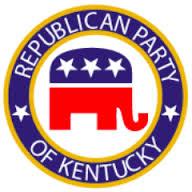GOP grants preliminary caucus approval to Paul
BOWLING GREEN, Ky. - The Kentucky Republican Party's Executive Committee gave preliminary approval Saturday to U.S. Sen. Rand Paul's request to hold a presidential caucus in 2016 rather than a primary election.
The move would rescue Paul from the consequences of a state law that could have prevented him from seeking both the presidential nomination and renomination for his Senate seat simultaneously.
"I just want to be treated like many other candidates around the country who have not been restricted (from running for two offices at the same time)," Paul said in an interview.
The party's central committee will be asked to formally adopt a more specific plan in August after a committee of 13 people create a detailed proposal that will likely address issues like ballot security, absentee voting and cost of a caucus, which must be borne by the party.
The party's executive committee met for nearly two hours in closed session in Paul's hometown of Bowling Green before voting unanimously to recommend that the party move forward with the caucus.
Paul, who said he'll likely decide if he will seek the presidential nomination within the next month or so, made his case to the group and answered questions and concerns about the plan during the closed meeting.
In an interview, Paul said he told the group that there were two reasons that he favors the caucus.
First, he said, it "levels the playing field" by allowing him to run for president without having to give up his senate seat — a luxury afforded to presidential candidates from other states.
Second, he said it will make Kentucky a player in the nomination process because it would allow Kentucky to move up its presidential preference process to an earlier date. Currently, Kentucky presidential primaries are conducted in late May, after the nominees are usually decided.
Paul said the fact that the meeting lasted for two hours didn't mean there was dissent. "It's a big change and people want to know about what change means and so, it was just working through that," he said.
State Party Chairman Steve Robertson said there were a number of questions addressed during the meeting. "People have been concerned about cost. People have been concerned about participation in some sort of absentee manner," he said.
Paul acknowledged that there has been some initial skepticism about the plan but he cleared what may have been the final hurdle last week when U.S. Senate Majority Leader Mitch McConnell — the godfather of Kentucky Republican politics — gave his blessing.
McConnell didn't attend the meeting but his top aid in Kentucky, Terry Carmack, was there and voted for the proposal. Former Jefferson County Republican Party Chairman Jack Richardson said several people close to McConnell have urged him to vote for the caucus.
Republican National Committeeman Mike Duncan, a key ally of McConnell, made the motion to press forward with the caucus.
Paul noted that several members of the Kentucky delegation to Washington D.C. either attended Saturday's meeting or sent letters of support for the caucus and said that McConnell's backing was "very important."
The caucus solves Paul's problem as it relates to the primary but perhaps makes for an even stickier situation in November that could cost the GOP control of the Senate if Paul makes it onto a ticket for president or vice president.
That's because Kentucky law prohibits a candidate from appearing twice on a ballot in most situations — and moving the presidential preference to a caucus election allows Paul to remain on the ballot for his Senate seat in May.
But he gets no assurance that he can remain on the ballot for U.S. Senate in November if he's nominated for president or vice president.
What compounds the problem is another state law would prohibit the party from replacing Paul on the ballot for U.S. Senate once he wins the primary.
With Republicans having to defend numerous seats in Democratic states that went to the GOP in 2010's wave election, the loss of one seat could be tremendously important to the party.
Paul said after the meeting that he'll address that issue if and when he is nominated for national office. "This solves the first part of the equation ... hopefully there will be a second part of the equation and we'll have to deal with it when we get there," he said.
---
By Joseph Gerth
The Courier-Journal
Kentucky Press News Service
Date: 03-08-2015
- Log in to post comments



























